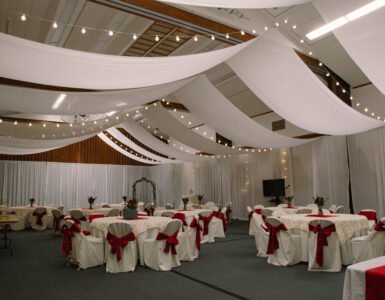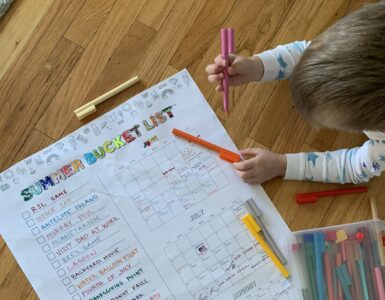More and more women are finding themselves back on the job hunt. But when it comes to nailing a job interview, women in particular make some common mistakes.
Carly Hazen, a recruiter with Prince, Perelson and Associates, identifies the top ten interview mistakes most women make.
Lack of Preparation & Research
One of the most common interview mistakes women make usually happens before the interview even gets started! Failing to adequately prepare for an interview by conducting thorough research on the company, the culture and the hiring manager will not only hinder success in an interview, it can also place you in a situation of unnecessary anxiety. Background information including company history, locations, divisions, and a mission statement are all available in an “About Us” section on most company websites. Review it ahead of time, then print it out and read it over just before your interview to refresh your memory. You can also check the company’s LinkedIn page and Facebook page, if they have one. Knowledge is power, so when you know as much as you can beforehand, you’ll be more confident building a natural rapport.
Talking too Much, While Saying too Little
This phenomenon typically happens when someone being interviewed gets nervous and begins sharing information that isn’t relevant, interesting or demonstrative. Talking too much is distracting, disrespectful and can even be detrimental. A key trigger is usually the “tell me about yourself” question, so look for that common pitfall and avoid rambling at all costs! Keep your answers succinct and to the point, and if the interviewer wants more detail, they will ask you for it.
Revealing Personal Information
Regardless of how warm, welcoming or amiable your interviewer may appear, your personal life – your kids, your spouse, your hobbies, your religion and/or political views are NEVER topics to delve into during an interview. An interview is a professional situation, not a personal one. Very light references are fine, but still risky because a tremendous emphasis in the job market today is placed on a “cultural fit,” which means; can this individual blend well with the other employees here? If you divulge too much personal information, it displays an instant lack of professionalism, but depending on what you reveal, it can also trigger concerns about how well you would connect with an established team.
Talking Negatively – About Anything!
When interviewing for a new position, the employer is looking to see how you would handle conflict in a mature and effective way, especially if the position has an element of stress involved. When you focus repeatedly on negative aspects about a previous job, situation or co-worker, it will often have a reverse effect and you will be the one appearing incompetent – and irritable to boot! Focus instead on what you learned from a contentious situation, and how that has helped you succeed in other areas since.
Displaying a Lack of Confidence, or Worse, Lack of Interest
There is only one person in an interview who can sing your praises, and that’s you. For many women, it feels awkward and uncomfortable to list what you do better than anyone else, why you stand out from your peers, and why you are the best person for a particular job, but there is a way to communicate these strengths without being arrogant. You can start a sentence by saying, “I’ve been told I’m very good at…” or even, “Previous supervisors have commented on by ability to…” However you do it, try to appear confident and interested in the position! If you aren’t excited to be there, you probably shouldn’t be.
Dressing Inappropriately
The term “dressing inappropriately,” can immediately conjure images of sheer clothing or short skirts, but more often what happens is failing to dress in a way that reflects the current culture of the company you’re interviewing with. Sure, it’s hard to figure out exactly how to dress when you’ve never set foot in the interviewer’s office before, but ask around, look online and check Facebook for photos of current employees around the office. You could even call the receptionist and ask for advice. Sometimes a full suit will come across as much too rigid and serious, whereas being underdressed can feel even worse.
Asking All the Wrong Questions
Job applicants should place as much thought into asking questions as they do answering questions. Whether it is your intention or not, every question you ask, no matter how small or seemingly insignificant has the potential to reflect your personality, your preparation, your interest in the position and your work ethic. Always have questions to ask, but prepare those questions beforehand and be thoughtful about what information you want to gather. Those questions will be just as important as your answers – sometimes even more so.
Going From “Seller” to “Buyer” Too Soon
Sometimes an interview will be going so well that you may begin to feel the interview is in the bag. It’s not! Not yet, anyway! Oftentimes, when an interviewer starts feeling like the job is already theirs, they stop selling their skills and switch into buying mode – asking questions about salary, vacation time, benefits or telecommunicating options. These topics are all appropriate to ask at the right time, which is when you are officially offered the position.
Know Yourself – and Your Work History
Even when you’ve already submitted a resume for a position, you may also be asked to fill out an in-depth application. Make sure you know your dates of employment, when you graduated, and what references you prefer to have contacted, and how to reach them. Make sure you are entirely truthful and be prepared to answer questions about why you left your last position. These are very basic nuances surrounding the interview process that are often over-looked and disappointing to an interviewer when one of the primary functions for a position is being prepared.
Expect the Unexpected
Interviewing is stressful, there’s no way around it. So do yourself a huge favor by mentally preparing for unexpected questions like “what do you want your career to look like in five years,” or “why are you really looking to leave your current position,” or “why is there a large gap in your resume?” Know what you want to say, and how you want to say it, so that you can remain calm and steady regardless of what is thrown at you!















Add comment